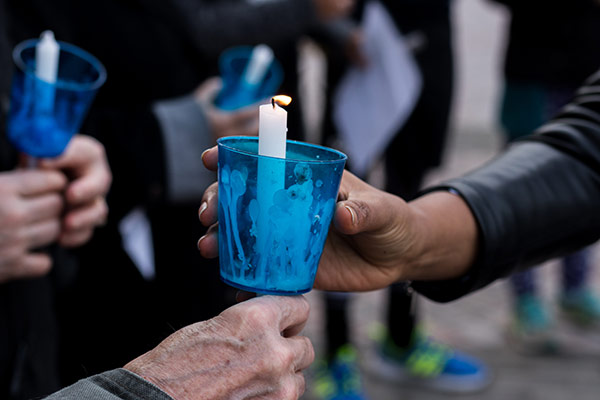Spring 2022
March 4: The Baker Institute will offer a conflict resolution workshop for faculty, staff, and administrators on March 4. Leading the workshop was Baker Institute Director Zia Haque and Baker Institute spring ’22 Scholar in Residence Dr. Amr Abdalla. They will focus on academic community settings using real-life scenarios of conflicts common among faculty, administrative staff, and students. The workshop will apply interactive, participatory methods for analyzing conflicts and designing peaceful approaches to resolve them. The purpose of this workshop is to enhance participants’ pertinent communication and conflict resolution skills that will be effective in the college environment. Open to faculty, staff, and administrators.
Feb. 22: Dr. Amr Abdalla, The Baker Institute’s spring 2022 scholar in residence, will give a lecture titled "Life after Peace Studies" Feb. 22 at 7:30 PM in Neff. Dr. Abdalla will share some of his reflections on how his PACS degree advanced his professional career and contributed to his personal growth. He will offer stories of the work he has done worldwide that had direct positive impact on issues of social justice, empowerment and peacebuilding—all of which, he posited, were not possible without a PACS degree, which opens doors for a myriad of jobs and opportunities in all sectors, from business to government, international organizations, and NGOs. This event is free and open to the public.
Fall 2021
November 10 and 16: Restorative Justice 101 workshop led by Jacoba Rock, with Zia Haque and Crystal Sellers-Battle. Restorative justice is one of those buzzwords you might have heard in connection to conflict resolution, community engagement, peacebuilding, and social justice work…but do you know what it means? Have you been trained on its background, or to use its dialogue skills? In a two-part, five-hour workshop entitled “Restorative Justice 101”, Dr. Jacoba Rock (Social Work & Criminal Justice) will unpack the term and give a comprehensive historical and theoretical overview, before leading dedicated participants in simulation and realplay to build skills. Sponsored by The Baker Institute for Peace and Conflict Studies with the support of the Office of Equity, Diversity, and Inclusion and the Office of the Provost, this offering is for anyone on campus—faculty, students, staff, and administration—who wants to explore collaborative and restorative conflict resolution approaches.
Part one, 4-6:30 PM, Wednesday Nov. 10 (virtual and recorded for asynchronous viewing): Overview and definition of restorative justice, exploring history, theory, and research, as well as a variety of models. (required to participate in part two, but may be taken by itself)
Part two, 4-6:30 PM, Tuesday Nov. 16, Sill Boardroom and Zoom (Hy-flex; will not be recorded): Part one participants will practice what they learned and build their skills through facilitated simulation and realplay. Taco bar for on-site participants! (Must have pre-registered and completed part one to participate; certificate of completion for a five-hour restorative justice workshop provided for all who complete parts one and two)
Pre-registration is required! Please visit this link to register before noon Tuesday, Nov. 9.
November 1: Talk and reading by Mimi Schwartz, author of Good Neighbors, Bad Times Revisited, 7:30 PM, Ellis Ballroom. Co-sponsored with English and History/Art History. Free and open to the public.
October 28: Lecture by Kennesaw State University's School of Conflict Management, Peacebuilding and Development director Dr. Joseph Bock, titled "What if Gandhi had a smartphone? How the field of Peace and Conflict Studies is changing and what you can do about it." 7:30 PM, BAC Alumni Hall. Free and open to public. Dr. Bock’s lecture will explore how social media, big data, artificial intelligence, neuroscience, and computational speed are changing the nature of conflict, between individuals, communities, states, and nation-states.
October 12: Dr. Polly Walker, Juniata College Associate Professor Emeritus and member of the Cherokee Southwest Township, will give a virtual lecture titled “Cry for Justice: Addressing the intergenerational impacts of the Indian Boarding Schools,” from 7-8 PM via Zoom, in honor of Indigenous Peoples’ Day Oct. 11. Walker’s talk will explore the discovery of the unmarked graves at boarding schools in Canada; Deb Haaland's call for an inquiry into the Indian boarding schools in the U.S.; and a process underway in Albuquerque (where Walker now lives) to honor the Native children who died at the Indian School, which is now a public park and unmarked.
Spring 2021
March 3: Virtual Q&A with renowned antiracism scholar Dr. Ibram X. Kendi, author of How to Be an Antiracist and founding director of Boston University's Center for Antiracist Research.
April 19: Virtual workshop “Black Feminist Prophetic Attention” with brontë velez, a Black-Latinx transdisciplinary artist, designer, educator, and creative director of Lead to Life.
Fall 2020
Oct. 8: Virtual panel of PACS alumnae speaking about life and careers after Juniata. Nora Connors ('17), Stephanie Farfan ('15), Savannah Parson ('18), Ashley Pinamonti ('16), and Sarah Ullom-Minnich ('18).
Nov. 18: Virtual workshop “Career Strategies for a Life Committed to Peace and Social Justice" by educator, consultant, and career coach David J. Smith focusing on the fields of conflict resolution, peacebuilding, and humanitarian action.
Spring 2020:
Feb. 19: "We can't engineer peace, but we can engineer more peacefully," a lecture by Jerry McCann, civil engineer. 7:30 PM in Neff. This event is free and open to the public.
Feb. 22: Intensive workshop with Jerry McCann on tech-driven peacebuilding in the digital age, 10 AM-3 PM, Ellis Ballroom. More info forthcoming.
Fall 2019:
Nov. 16: Screening of DACAmented and Q&A with filmmaker St. Claire Detrick-Jules and DACA recipient Nahuel Godoy. 4-6 PM, Neff. This event is open to the Juniata campus community.
Nov. 16: "An encounter with our ancestors: Exploring Andean ways of knowing and celebrating Day of the Dead" intensive workshop with Daniel Bryan, Baker Institute fellow and scholar in residence, Nov. 14-22. 10 AM-2 PM in Sill, includes lunch. This workshop is by invitation only.
Oct. 28-29: PACS faculty and students attended the Human Rights Forum (formerly the Nobel Peace Prize Forum) at Augsburg College, Minneapolis, Minn. The Baker Institute funded registration and expenses for three students to attend.
Oct. 4-6: PACS faculty and students to attend the Peace & Justice Studies Association conference in Winnipeg, Ontario. The Baker Institute funded registration and expenses for six students to attend.
Sept. 5: Lecture on Brexit and Northern Ireland by community peace activist Jon McCourt of Derry. 7 PM, BAC Alumni Hall. This event is free and open to the public.
Spring 2019:
March 20: Screening of the film Walk in My Shoes by Teya Sepinuck, founder and artistic director of Theatre of Witness. 7 PM, BAC C225. This event is free and open to the public.
March 21: PACS Salon with biologist Dr. Nicole Gross-Camp, interdisciplinary environmental social scientist at Allegheny College. Noon to 1 PM, PACS Resource Room, Oller Center. By invitation.
March 30 and April 6: Master class 1 and 2 with Caecilia van Peski, PACS Scholar in Residence, spring 2019. 1-5 PM, BAC C109. In both master classes, Van Peski will emphasize the role of the international community, including civil society, and the role of women in peacekeeping. Master classes are free and open to all students and faculty, as well as members of the Huntingdon community. Participants are asked to RSVP for one or both classes by emailing bakerins@juniata.edu before March 27 (for the March 30 class) and before April 3 (for the April 6 class). All participants will receive a Certificate of Completion. Read more about Caecilia van Peski here.
March 31-April 5: Genocide Awareness & Action Week. The Baker Institute is a co-sponsor of this campus-wide, week-long series of events to raise awareness about genocide.
April 10: Public lecture by Caecilia van Peski, PACS Scholar in Residence, spring 2019. Van Peski will speak on the United Nations Pathway to Peace Architecture, highlighting her own professional involvement in peacekeeping and peace monitoring. 7-8:30 PM, BAC Alumni Hall. This event is free and open to the public.
Fall 2018:
Nov. 29: Lecture by Jerry McCann, "Engineering through a peacebuilding lens: Being a peaceful part of a changing world." 7:30 PM, Neff Lecture Hall. This event is free and open to the public.
Oct. 8: Dr. Emily Welty, Nobel Laureate and Director of Peace and Justice Studies at Pace University, will give a public presentation titled "We are unstoppable; another world is possible" at 7:30 PM in BAC A100. Using the case study of Welty’s work with the 2017 Nobel Peace Prize winning International Campaign to Abolish Nuclear Weapons (ICAN), Occupy Wall Street, and the Moral Monday movement, this talk will explore how all of us can participate in acts of dissent and radical generosity. This event is free and open to the public.
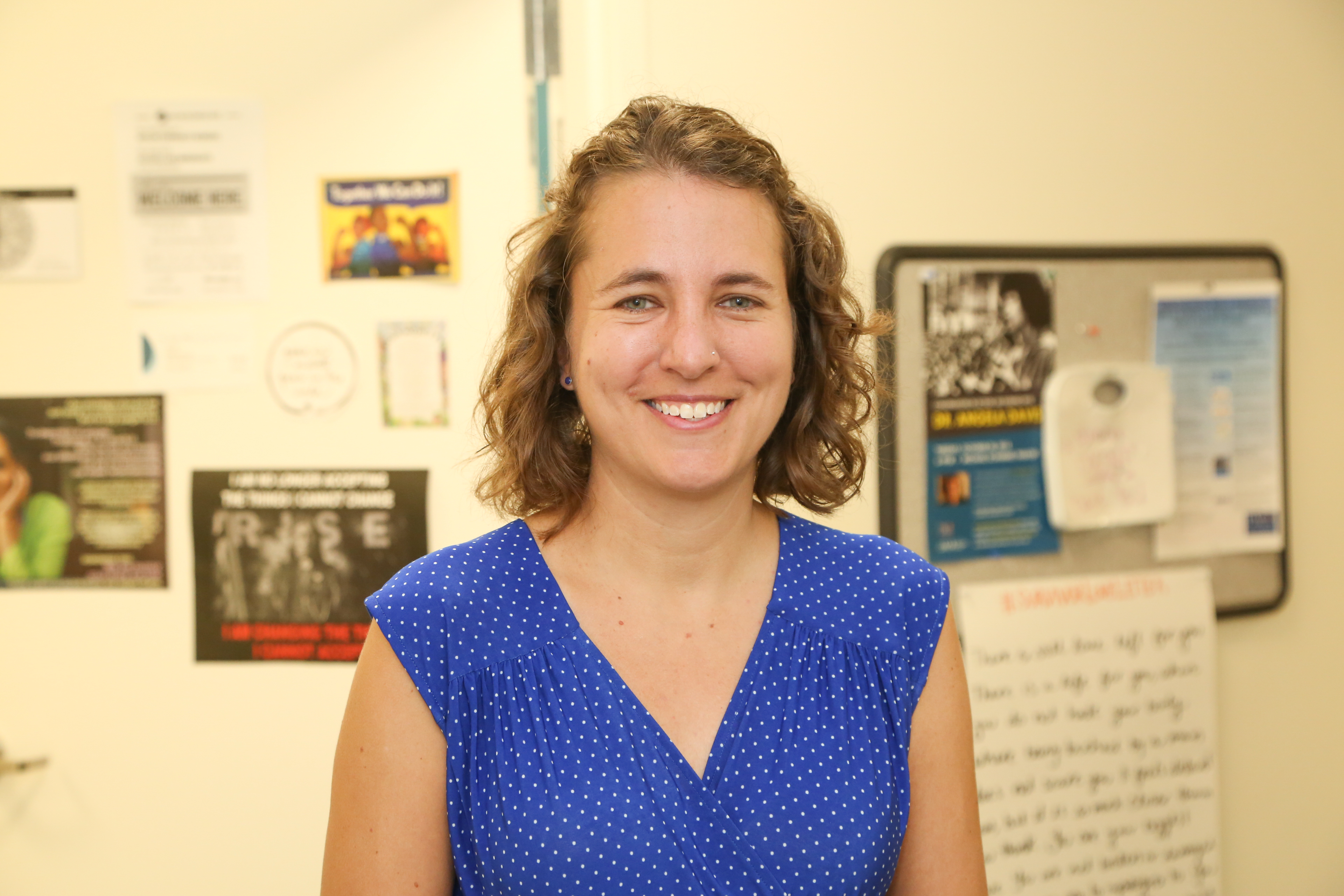
Emily Welty
Welty will give a talk titled “We are unstoppable; Another world is possible.” As children we are often told that “life’s unfair” and that we need to accept and adjust to a world that feels unjust. However, some of the most meaningful parts of activism emerge from our willingness to insist that injustice and violence are not the way we are meant to live and to commit ourselves to the creation of new norms. From direct acts of resistance to advocacy at the United Nations, we will explore how the steady insistence that the world can be different has the power to transform both our daily lives as well as international conflict. Using the case study of Welty’s work with the 2017 Nobel Peace Prize winning International Campaign to Abolish Nuclear Weapons (ICAN), Occupy Wall Street and the Moral Monday movement we will explore how all of us can participate in acts of dissent and radical generosity.
Dr. Emily Welty is an academic, ecumenist, activist and artist living and working in New York City. She is the Director of Peace and Justice Studies and an Associate Professor at Pace University where she teaches classes focusing on nonviolence, humanitarianism and reconciliation and transitional justice. She has a PhD from SOAS at the University of London, an MA in International Peace and Conflict Resolution from American University and a BA from the College of Wooster.
Welty’s research focuses on the religious dimensions of peacebuilding with an emphasis on humanitarianism and nuclear disarmament as well as nonviolent social movements. She is the co-author of Unity in Diversity: interfaith dialogue in the Middle East, Occupying Political Science: the Occupy Wall Street movement from New York to the World and Peace and Justice Studies: Critical Pedagogy (forthcoming 2019) and numerous journal articles. Emily is also a playwright and has worked with The Civilians, the Acting Studio at Chelsea Rep and the Einhorn School of Performing Arts.
Welty is the Vice Moderator of the World Council of Churches Commission on International Affairs and is the chair of the Nuclear Disarmament Working Group. She is part of the International Campaign to Abolish Nuclear Weapons (ICAN) where she works on faith-based engagement in nuclear disarmament. Welty was part of the 2017 United Nations negotiations that resulted in the Treaty on the Prohibition of Nuclear Weapons and for which ICAN won the 2017 Nobel Peace Prize.
Sept. 13-15: PACS faculty and students attended the Nobel Peace Prize Forum at Augsburg College, Minneapolis, Minn. The Baker Institute will fund registration and expenses for six students to attend.
Sept. 27-30: PACS faculty and students to attend the Peace & Justice Studies Association conference in Philadephia, PA. The Baker Institute will fund registration and expenses for up to 10 students to attend.
2017-2018
Sept. 14-17: PACS faculty and students attended the Nobel Peace Prize Forum at Augsburg College, Minneapolis, MN. The Baker Institute funded registration and expenses for students to attend.
Sept. 21: Peace & Justice Studies Association President Michael Loadenthal was The Baker Institute's speaker for International Day of Peace 2017. Loadenthal lectured at 7 PM in Neff. Free event.
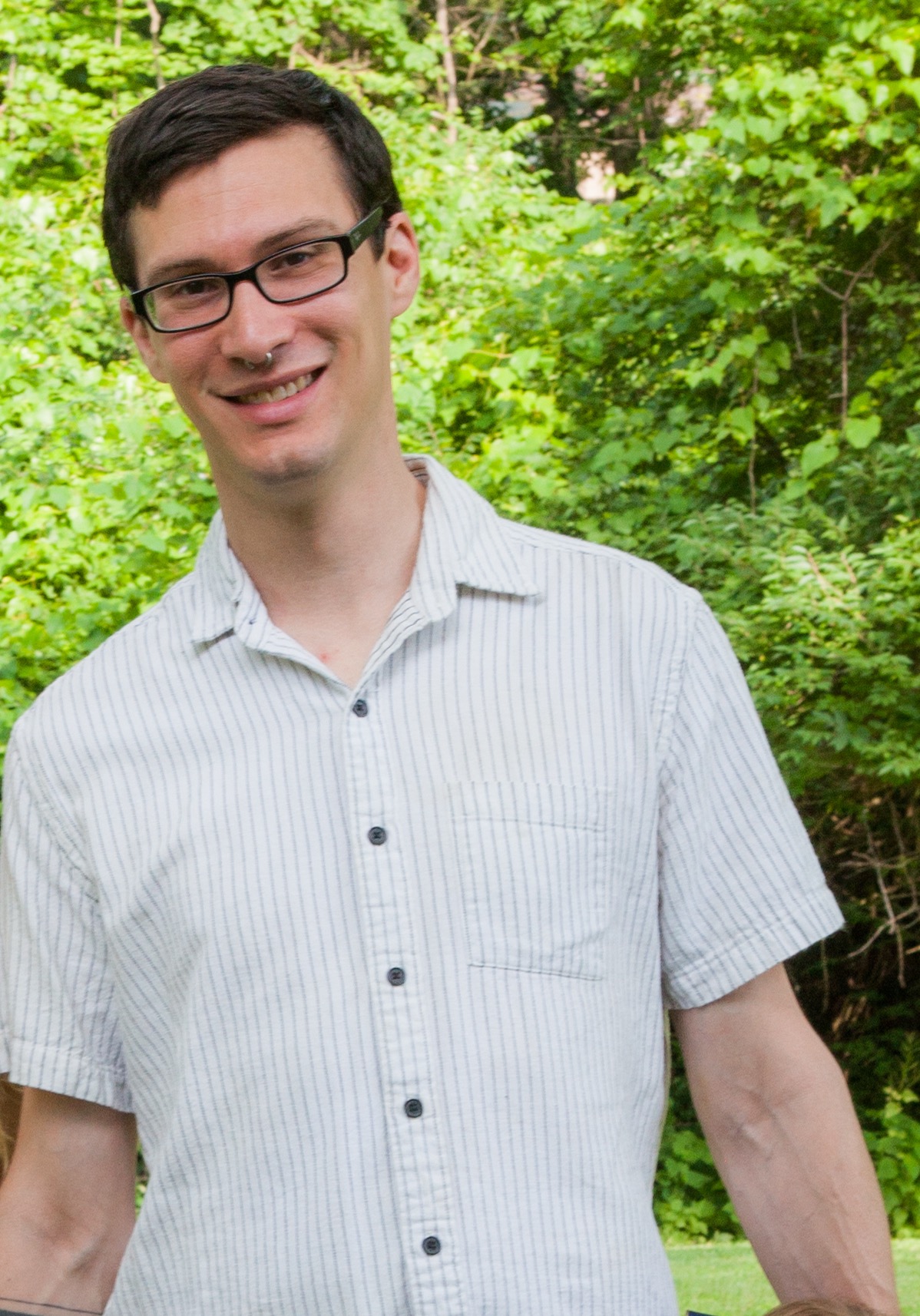
Michael Loadenthal
Loadenthal gave a lecture titled “From Demonstration to Riot-ization: Social Control in the Era of Trump,” noting, “The last two decades have been a seemingly unending succession of social movements agitating for a better future. In his foundational account of the history of prisons and social control, critical theorist Michel Foucault argued that we had moved far beyond an age when the King wielded his power through force, maintaining the compliance of his subjects through violence.
Loadenthal’s talk explored this theory in light of shifts in language, practice, and law in the twenty-first century. How has the rhetoric of counter-terrorism informed the policing of social protest, and what does it mean to be living and dissenting in the “post-truth” era? Through an exploration of recent legal cases, Loadenthal examined what it means to protest in the era when activists are called terrorists, and marchers termed rioters.
Oct. 4: Journalist and award-winning author Jennifer Steil gave a reading at 7 PM in BAC A100. Steil served as editor-in-chief of a newspaper in Yemen and has written extensive prose about conflict in the Middle East. Free event.
Oct. 9: Scotti Clifford and Juliana Brown Eyes of Scatter Their Own discussed the current absence of peace and justice in America toward Indigenous Peoples at 7 PM in Sill.

Scatter Their Own
Oct. 21: The Baker Institute hosted peace scholar Daniel Druckman for a master class called “From Research to Practice in Peace & International Studies” from 10 AM to 3 PM in Sill.
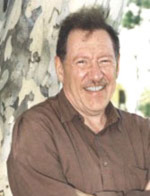
Dr. Daniel Druckman
Dr. Druckman’s master class explored research on such topics as justice in the peace process, settlements and resolutions, enemy images, the contact hypothesis, the security dilemma, and alternative mediation approaches. Participants engaged in interactive learning exercises and had the opportunity to reflect on lessons learned for both scholarship and practice.
Druckman is Professor Emeritus of Public and International Affairs at George Mason University, an Eminent Scholar at Macquarie University in Sydney and an Honorary Professor at the University of Queensland in Brisbane. Druckman visited Juniata in fall 2016 to give a lecture called “Negotiating Peace: The Role of Procedural and Distributive Justice in Achieving Durable Peace.”
Oct. 25-29: PACS faculty and students attended the 2017 Peace & Justice Studies Association conference in Birmingham, AL. The Baker Institute funded registration and expenses for students to attend.
Feb. 1: Douglas Herman lectured on the Ho¹oponopono and Native Hawaiian peacebuilding efforts at 7 PM in Neff. Free and open to the public.
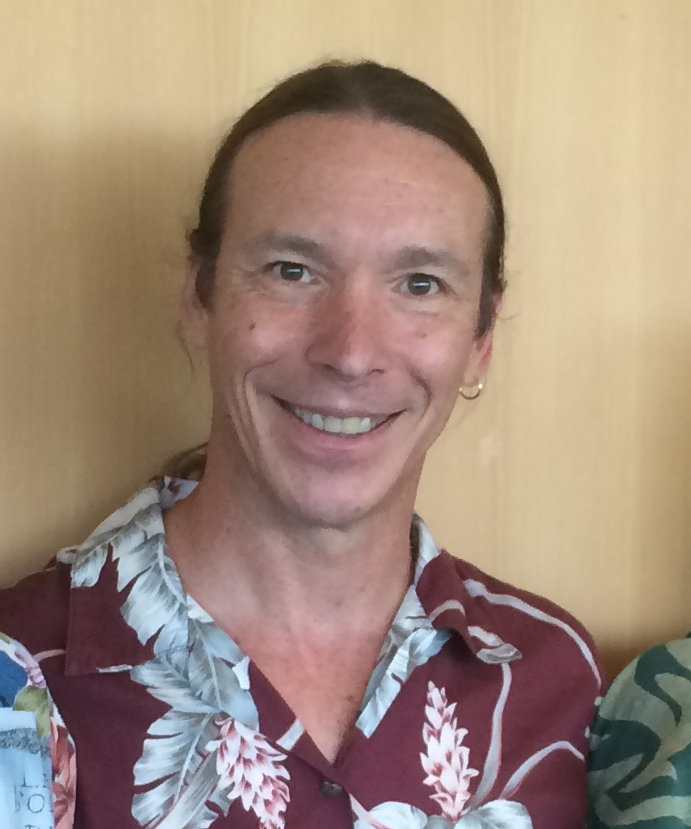
Douglas Herman
Herman gave a talk called “Making things right: Hawaiian approaches to Conflict Resolution.” The traditional Hawaiian approach to resolving conflicts is rooted in a deep understanding of balance and harmony in the universe and in society. Dis-ease arises when things get out of balance, and so traditional healing is also linked to the resolution of conflicts among members of the community.
This presentation gave a brief overview of the structure and principles of traditional Hawaiian society. It thend examine two approaches. Both are called ho`oponopono—“the act of setting things right.” The first is the traditional method, involving several members of the community and a facilitator to elicit the root of the problem and to develop a solution that is agreeable to all. The second is a modern revelation by the late kahuna la`au lapa`au (healing kahuna) Morrnah Simeona, that takes the traditional process to an internal level. Both reflect broader understandings of how humans should act in the world, the taking of responsibility for the effects of our actions, and the permanent rectification of conflicts without lingering animosity.
Herman is Senior Geographer for the Smithsonian National Museum of the American Indian (NMAI). At the Smithsonian, he has served chair of the Smithsonian Institutional Review Board (IRB) for Human Subjects Research, and chair of the Smithsonian Congress of Scholars. He holds a doctorate in Geography from the University of Hawai‘i, and in addition to his work at NMAI, he is the director of Pacific Worlds, a web-based Indigenous-geography education project for Hawai‘i and the American Pacific. Since 2001 he has held various offices with the Indigenous Peoples Specialty Group of the Association of American Geographers. His publications include the forthcoming, edited volume “Giving Back: Research and Reciprocity in Indigenous settings.” He serves on the board of the journal IK: Other Ways of Knowing.
Feb. 12-17: Caecilia van Peski, United Nations Special Representative for the Netherlands and diplomat for the Dutch Ministry of Foreign Affairs, was in residence and gave a free public lecture on Feb. 13 at 7 PM in BAC Alumni Hall.
March 5: Ecuadorian artist, activist, and youth worker Chelsea Viteri gave a talk titled "From University to Pluriversity: Decolonizing Education through Collective Storytelling," at 7 PM in Neff. Free and open to the public.
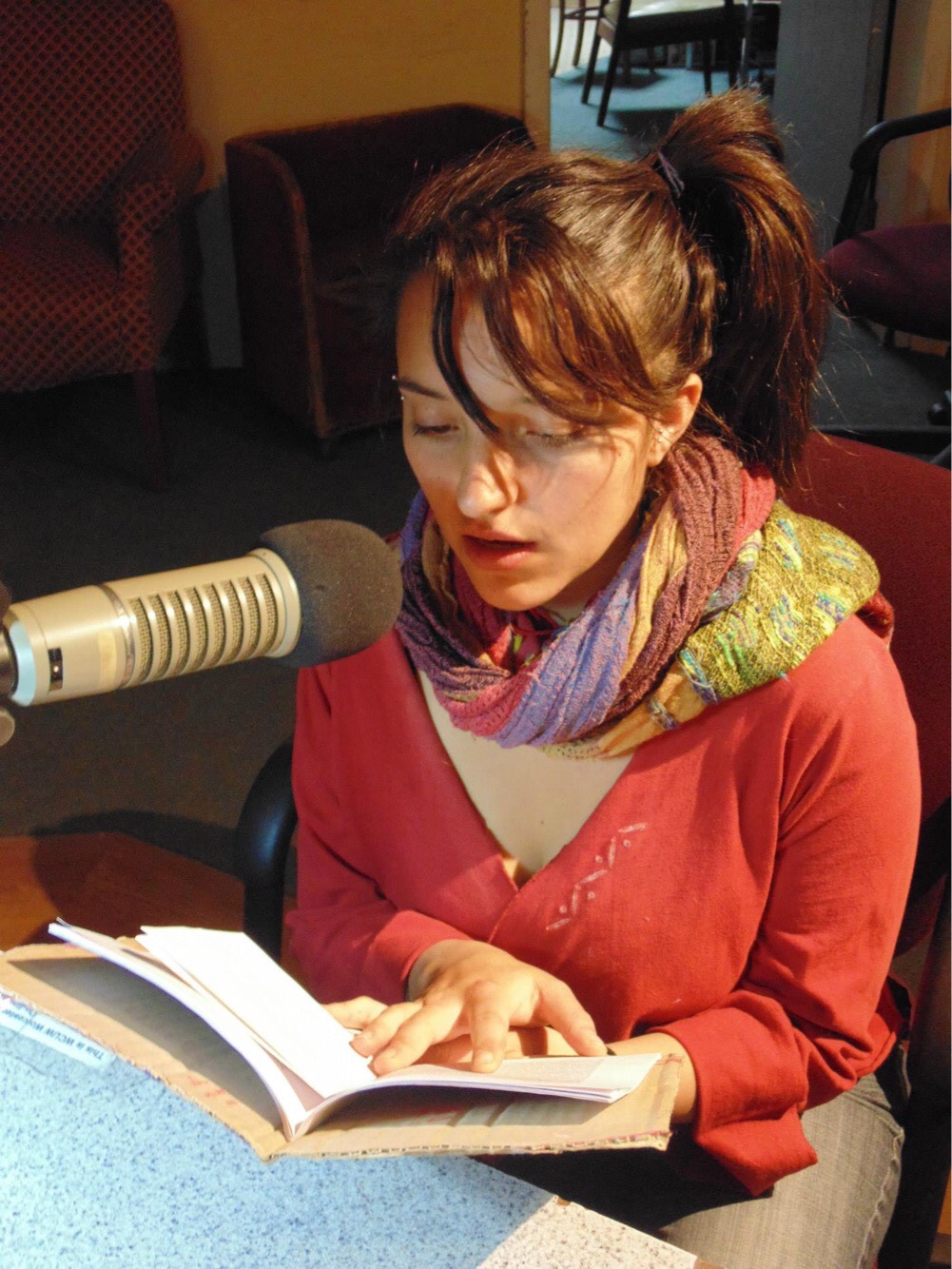
Chelsea Viteri
Viteri gave a talk called “From university to pluriversity: Decolonizing education through storytelling,” in which she argued that the colonization of our education goes well beyond the content of our lessons. In addition to what we are learning, decolonization demands we address how we learn, where we learn, and with whom we learn. How do we include other ways of learning and other kinds of knowledge? How do we successfully work with communities and “the other” to transform our reality? Viteri posited that decolonization begins by connecting to one of our greatest human instincts: story. Creating stories with “the other” provides us with new tools and perspective to decolonize our university, slowly transforming it into a pluriversity.
Viteri is the program coordinator and an assistant instructor of the Pachaysana Institute in her hometown of Quito, Ecuador. She holds a Master’s degree in Community Development and Planning from Clark University, where she also studies Theater Arts and International Development. Viteri has worked with youth from diverse communities to utilize artistic expression as a means to create community and foster creative healthy containers for youth. Additionally, Viteri has been heavily involved in organizing for social justice advocacy and education, implementing artistic mediums including documentaries, poetry, theater and music, and has conducted research centered on the experiences of women in the midst of extractive industries in Latin America.
April 8-14: Genocide Awareness & Action Week, including an April 11 film screening and April 12 live performance by the Liberian Women's Chorus for Change. Both events took place at 7 PM in BAC Alumni Hall.
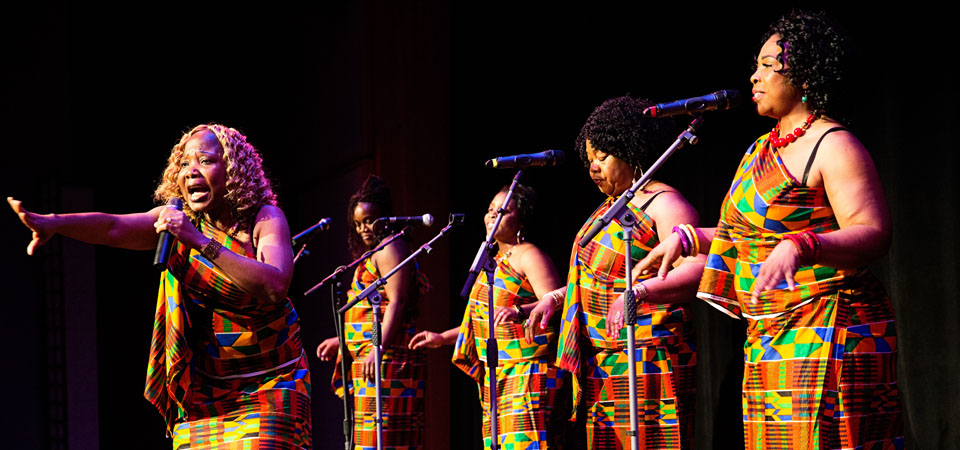
Liberian Women's Chorus
The Liberian Women's Chorus for Change brings the power of Liberian traditional song to the forefront of efforts to make communities safe and strong. Composed of renowned singers and dancers from Liberia -- Fatu Gayflor, Marie Nyenabo, Zaye Tete, and Tokay Tomah -- the Chorus inspires awareness and dialogue about domestic violence and other concerns of Philadelphia-area Liberian immigrants. The Chorus was formed in response to these artists’ own community research which found that local Liberian immigrant women have a hard time accessing resources and getting the support they need. Together, these award-winning performers create music intended to encourage women to make their voices heard, and to take positive steps forward.
There are an estimated 15,000 (or more) Liberians in the Philadelphia region. Most moved to the U.S. as refugees during the years of civil war (1989-2003) in their homeland.
The Liberian Women’s Chorus for Change initiative connects artists, community members, scholars, social service and cultural workers and activists of different generations. Together, they consider how best to foster change through the respectful and innovative combining of folk and traditional arts with social justice activism. Individual Chorus members have lost children to war; some have asked soldiers, though music, to lay down their weapons. All are now residents of the Philadelphia area. "We want our families and community members to have access to information and resources that will allow them the chance to flourish, with dignity, in their adopted home," says Chorus artistic director Fatu Gayflor. Stories evoked publicly, through song, have become the starting point for conversations leading to propositions of imaginative and, it is hoped, realistic paths to addressing pressing concerns.
April 14: Nonviolence training with Matt Meyer, 10 Am-5 PM, Sill. By invitation.
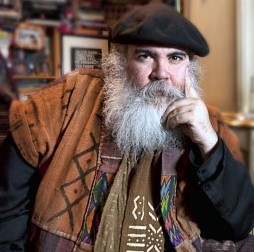
Matt Meyer
Meyer facilitated nonviolence trainings at Juniata on Feb 19, 2016, and April 14, 2018. He is a native New York City-based educator, author, and organizer is coordinator of the War Resisters International Africa Support Network, and a United Nations/ECOSOC representative of the International Peace Research Association. The founding Chair of the Peace and Justice Studies Association and former Chair of the Consortium on Peace Research, Education and Development (COPRED), Meyer has long worked to bring together academics and activists for lasting social change. A former public draft registration resister and youngest chair in the history of the War Resisters League, he was a founder of the Progressive Student Network and representative of the United States Student Association to the coalition which organized the historic million-person 1982 UN mobilization for disarmament and human needs.
Meyer’s work in K-12 public education and teacher training included ten years of service as Multicultural Coordinator for the NYC Board of Education's Alternative High Schools & Programs, as well as a stint as Union Leader of a local section of the United Federation of Teachers, AFL-CIO. His most recent of six books is We Have Not Been Moved: Resisting Racism and Militarism in 21st Century America (PM Press, 2012), which Dr. Maya Angelou noted was “so needed” for its “investigation of the moral issues of our time.” Co-edited by Elizabeth “Betita” Martinez and Mandy Carter, We Have Not Been Moved contains a foreword by Dr. Cornel West, and “After-Poems” by Alice Walker and Sonia Sanchez.
Argentine Nobel Peace laureate Adolfo Perez Esquivel has commented that “Meyer is a coalition-builder,” one who “provides tools for today’s activists” in his writings and his work.
April 28: Story Circle workshop with theater professional Gerard Stropnicky. 10 AM to 5 PM, Sill. Invitation only.
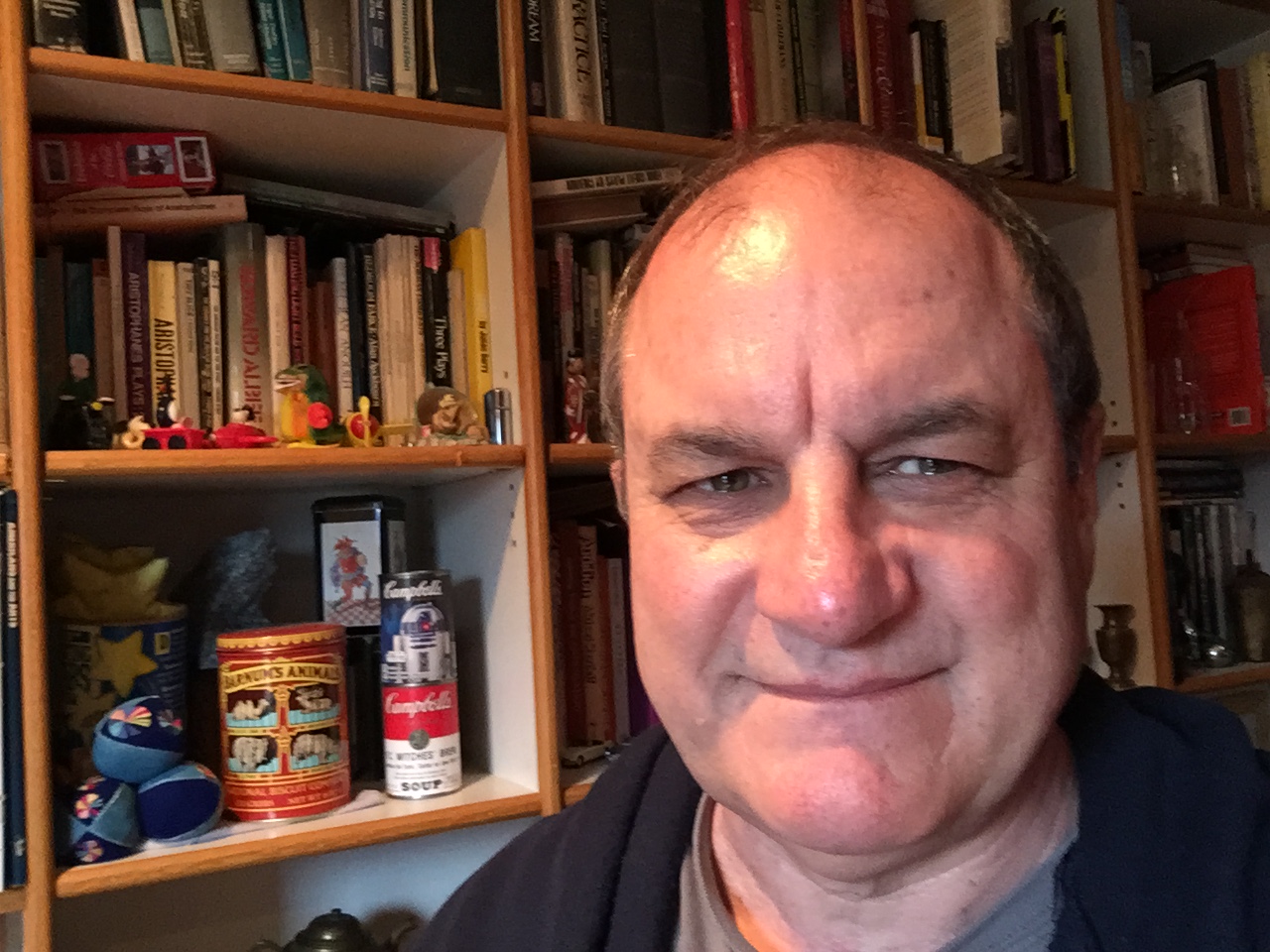
Gerard Stropnicky
2016-2017
Sept. 9: Informational lunch session with first- and second-year PACS students. Noon to 1 PM, PACS Resource Room, Oller Center. Free lunch; please RSVP.
Sept. 14: Lunch talk with Alexis Donkin (PACS '05) on writing and real world application of her PACS degree on a non-traditional career path. Noon to 1. Free lunch; please RSVP.
Sept. 16: PACS Welcome Back party in Oller Center! Taco bar and socializing with PACS students, faculty, staff, and friends of the program.
Sept. 29: Dean Peachey hosted a PACS Salon (formerly known as integrative seminar) called "Building a Canadian “Reconciliation Barometer." 4:30-6 PM. By invitation.
Oct. 18: Daniel Druckman lectured on "Negotiating Peace: The Role of Procedural and Distributive Justice in Achieving Durable Peace" at 7 PM in Neff. Druckman is Professor Emeritus of Public and International Affairs at George Mason University, an Eminent Scholar at Macquarie University in Sydney and an Honorary Professor at the University of Queensland in Brisbane. Free event.
Nov. 7: Screening of Ecuadorian film Vengo Volviendo, about one young man's internal struggle over whether or not to immigrate to the United States. Filmmakers Gabriel Paez and Isabel Rodas led a Q&A following the film, which won the Audience Award at the 2016 Ecuadorian Film Festival of New York. 8-10 PM, Good 402. Free event.
Feb. 12: "Love Trumps Hate"-themed Valentine's Day PACS party, by invitation.
Feb. 16: Dawoon (Donna) Chung (PACS '03) spoke to current students about how her Juniata PACS degree prepared her for a career with the United Nations. 7:30 PM, Good 402.
April 3: Rwandan genocide survivor Consolee Nishimwe spoke at 7 PM in Neff. This lecture was free and open to the public, and supported by The Baker Institute for Peace & Conflict Studies in collaboration with other departments and administrative offices as part of Genocide Awareness & Action Week 2017.
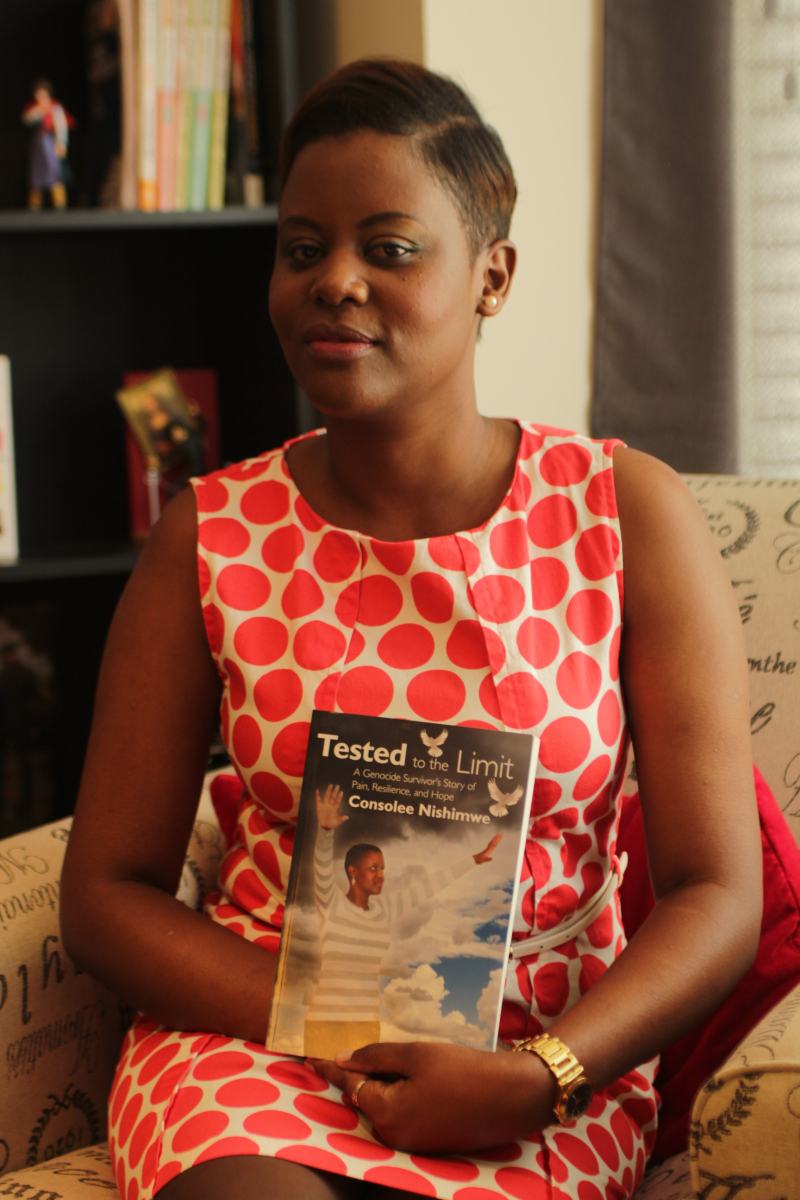
Consolee Nishimwe
April 7: Lissa Skitolsky spoke at 7 PM in Neff on incarceration as genocide. This lecture was free and open to the public, and supported by The Baker Institute for Peace & Conflict Studies in collaboration with other departments and administrative offices as part of Genocide Awareness & Action Week 2017.
April 12: David Radcliff gave a lecture titled "When worlds collide: Native vs. capitalist - Reports from the front lines in the Arctic, Amazon, and Desert Southwest" at 7 PM in Good 302. This student-coordinated lecture was free and open to the public.
Mar. 22: Kenyan peacebuilder Kitche Magak gave a public lecture 7-9 PM in Sill. Magak was The Baker Institute's scholar in residence from March 11-26. This lecture was free and open to the public.
2015-2016
Sept. 3: Artist and social justice activist Mahdis Azarmandi gave a talk titled “Whose peace (piece) anyway? Locating / Localizing Peace, Conflict and Self,” which examined questions about the current state of peace studies from a feminist and critical race perspective and how to navigate research and activism as a peace scholar. Free event.
Sept. 23: Educator, activist, and artist Daniel Bryan, who specializes in the use of participatory theatre as a means of education, empowerment and development, led an interactive presentation called “Fair Trade Education: Transforming Community through Creative Dialogue.” Free event.
Oct. 12: Former Chief Executive Director of the South African Savings Institute, Carnegie fellow, and University of Kansas Visiting Scholar Elizabeth Lwanga Nanziri spoke about the socio-economic strategies of the Reconstruction and Development Programme in post-apartheid South Africa. Free event.
![Elizabeth Lwanga Nanziri]()
Elizabeth Lwanga Nanziri
Oct. 29: A conversation with Fairfield Four producer and Penn State Altoona musicologist Jerry Zolten. Free event.
Nov. 4: "This Ain't Your Parents' Civil Rights Movement": An interactive panel comprised of five members of the Ferguson Frontline activism group. Free event.
Nov. 8: Performance by The Fairfield Four at the Stone Church of the Brethren, followed by a conversation with the group, facilitated by producer and musicologist Jerry Zolten. Tickets $5.
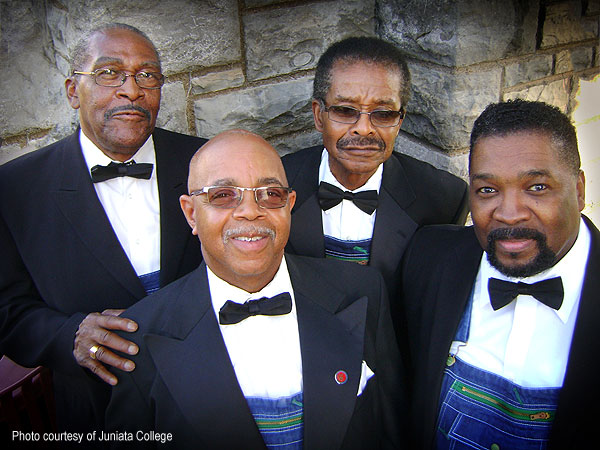
Fairfield Four
Founded in 1921 in Nashville, TN the Fairfield Four have maintained their authenticity by carrying on traditional stylings exemplified by the Bessemer Sunset Four, the Birmingham Jubilee Singers, and the Famous Blue Jay Singers with Silas Steele. The Fairfield Four are the recipients of multiple honors including 3 Grammy Awards, (1) Best Traditional Gospel Recording "I Couldn't Hear Nobody Pray" in 1997, (2) Album of the Year for the "O Brother Where Art Thou" Soundtrack Recording in 2001, (3) Best Gospel Roots album "Still Rockin' My Soul" in 2016, and two Lifetime Achievement Awards. They were also inducted into the Gospel Music Hall of Fame in 1999.
Feb. 4: "Preventing Violent Conflict: A US national interest," a presentation by Andrew Loomis (Juniata '92 PACS alumn), was held 7 PM in Neff Auditorium. Loomis' talk provided a perspective on how national security interests require fresh analysis about risks of violent conflict and dedicated thinking about effective responses to mitigate those risks. Free event.
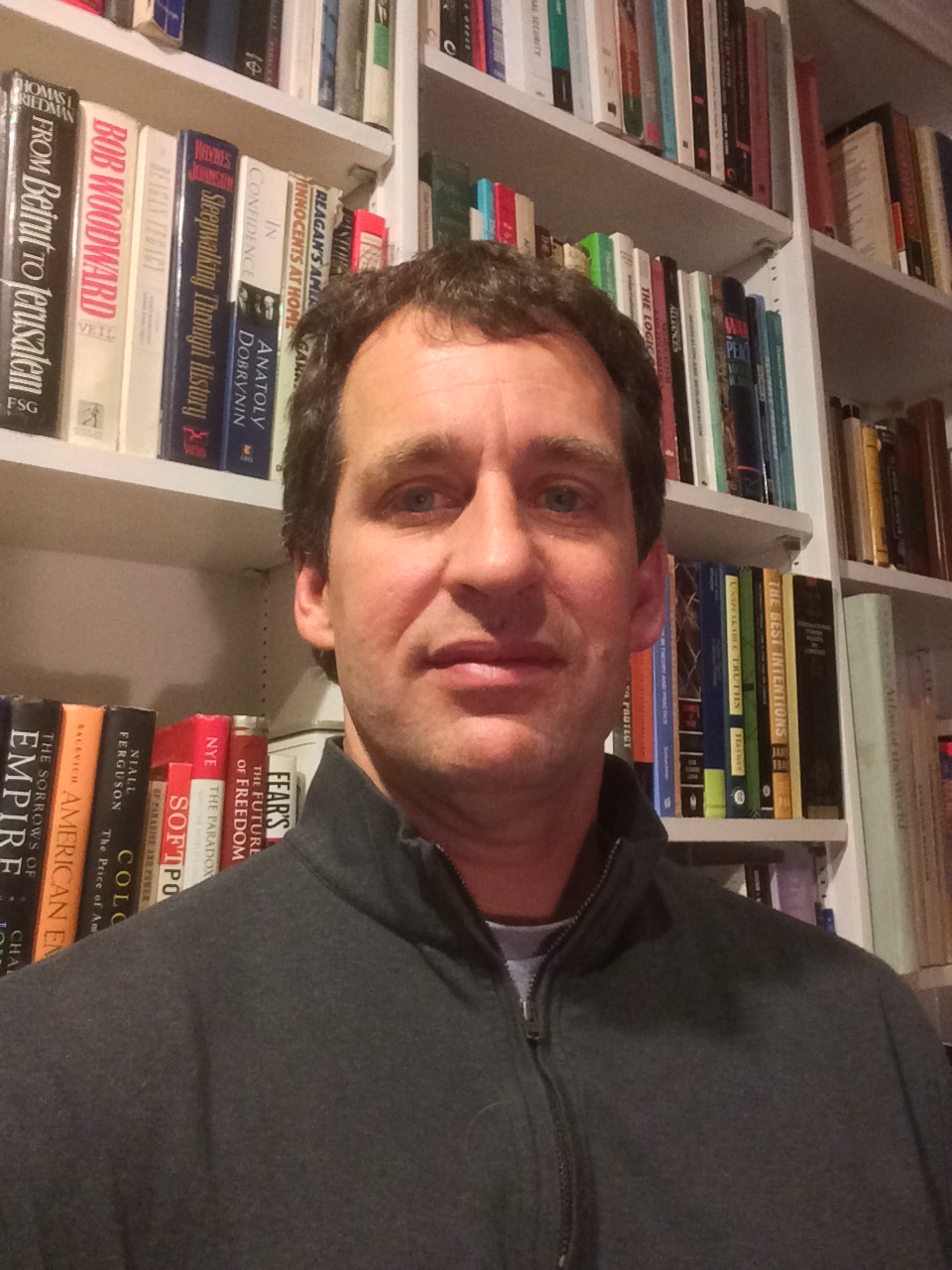
Dr. Andrew Loomis '92
U.S. State Department official Andrew Loomis (PACS ‘92), in a lecture titled “Preventing violent conflict: A U.S. national interest,” provided a perspective on how national security interests require fresh analysis about risks of violent conflict and dedicated thinking about effective responses to mitigate those risks. He described how this effort is evolving inside the US government and ways the State Department is structured to respond to evolving threats of conflict and instability.
Dr. Loomis currently serves as a senior officer in the State Department’s Bureau of Conflict and Stabilization Operations (CSO). His primary responsibility is providing expert counsel on localized peace processes, the development of strategies to prevent violent conflict, and elevating policy that relates to conflict and instability.
From 2014-2015, Andrew was Senior Advisor to the Under Secretary of State for Civilian Security, Democracy, and Human Rights and her principal representative to the State Department on the prevention of mass atrocities. In this role, Andrew developed and led the execution of a State Department strategy to improve the Department’s ability to detect, analyze, and act upon early risks of large-scale violence.
From 2013-2014, Andrew served as deputy director for CSO’s Office of Operations, and covered East Asia, South Central Asia, and South and Central America, and provided guidance and broad oversight of CSO engagements in Burma and Bangladesh. Andrew led CSO’s Burma engagement from 2011-2013, one of four priority engagements for the bureau. Andrew led the development and implementation of CSO’s strategy to arrest long-standing conflicts between ethnic minority groups and the Burmese military through analytical and personnel support.
Prior to work in the State Department, Andrew worked at the Center for a New American Security and the Brookings Institution, where he focused on a range of U.S. national security issues, in particular conflict prevention strategies in weak and failed states. Andrew has taught at Georgetown University, the College of William and Mary, and George Washington University. Andrew received his Ph.D. from Georgetown University and a master’s degree from Columbia University.
Feb. 19: Nonviolence Training Day, with guest trainer Matt Meyer, all-day event in Sill Boardroom. Free event for students only.
Feb. 25: Kandice Watson, Director of Education & Cultural Outreach for The Oneida Indian Nation, gave a talk called “Oneida Indian Nation: Culture and History” at 7 PM in Neff auditorium. Free event.
Mar. 14: Kevin Clements, Professor of Peace and Conflict Studies at the University of Otago, New Zealand, gave a presentation titled "The Politics of Compassion in a World of Ruthless Power" at 7 PM in Neff Auditorium. Professor Clements discussed the painful history of northeast Asia. Free event.


